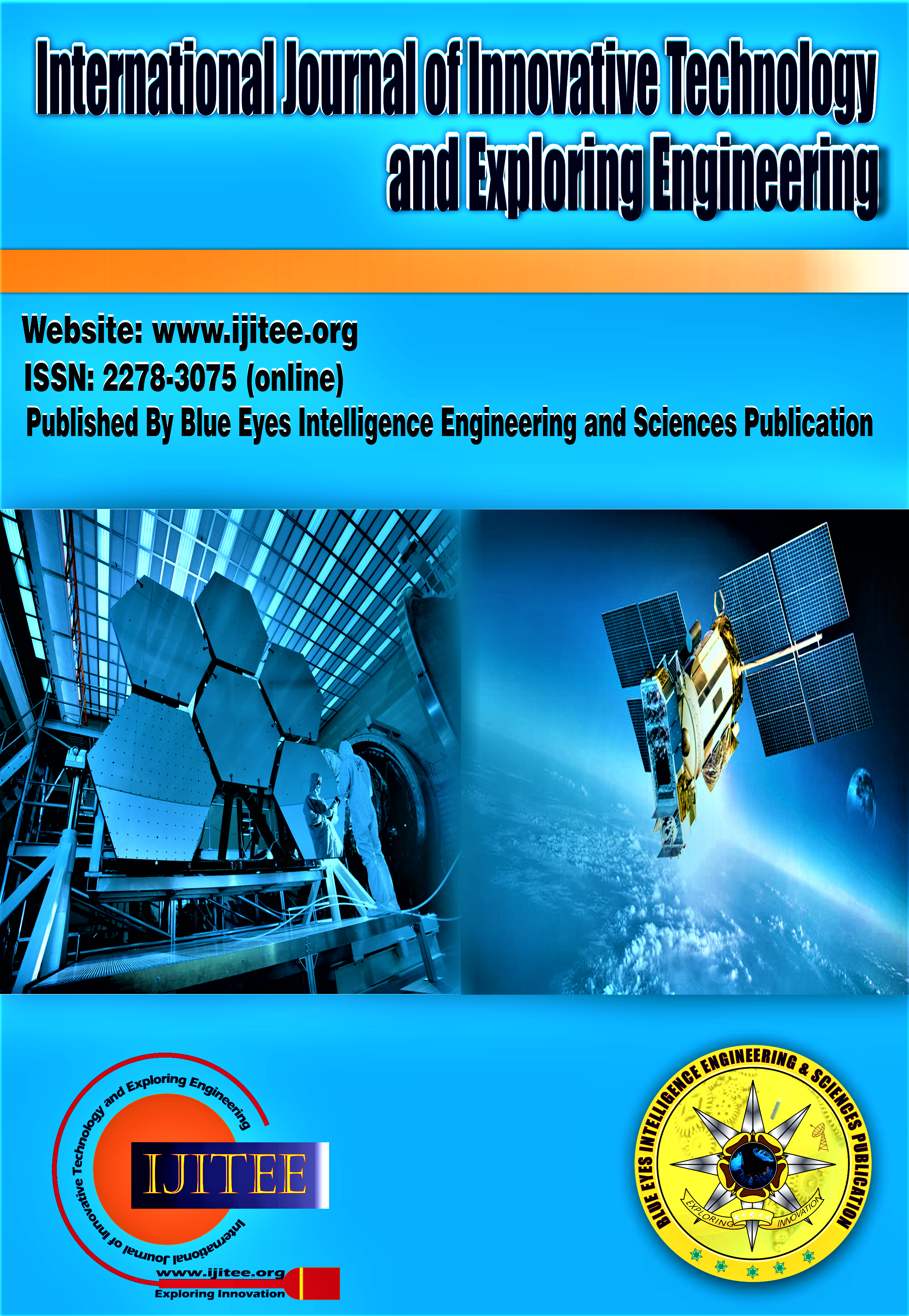The Effect of Hydrocarbon Pollution on Niger Delta Root Crops: A Case Study of Cocoyam [Colocasia Esculenta]
Main Article Content
Abstract
This paper investigates effects of re-occurring oil spillages on cocoyam, Colocasia esculenta (L.). It studies changes in petiole lengths, leaf blades, chlorophyll concentrations in leaves, and PAH and BTEX concentrations in tubers for three generations under diverse conditions. 8 10-gallon grow bags were used: Grow bags 5–8 were treated with a controlled quantity (4 L/cubic metre) of liquid crude hydrocarbon in the months of June 2019–2021; with 2 replications, after a 2-3-day interval within a week. In grow bags 3, 4, 7, and 8, poultry manure were applied once in 2 months after small seedlings emerged from soil surfaces. Grow bags 1 and 2, 3, and 4 served as “controls” for non-contaminated growth. Grow bags 7 and 8 were treated with hydrocarbons and poultry manure. In the first generation, coco yams planted in grow bags 7-8 showed growth responses (average values of 1.04 m, 51 cm, 4.45 mg/g for petiole length, leaf blade length, and chlorophyll concentration, respectively) very similar to coco yams planted in pristine soil with poultry manure with average values of 1.00 m, 50 cm, 3.45 mg/g. The cocoyams planted in pristine organic rich soils showed similar response with or without fertilizers (average values of 0.98 m, 48 cm 1.83mg/g and 1.00m, 50 cm, 3.45mg/g) with progressively smaller leaves as generation increases. The cocoyams in hydrocarbon impacted soils generally perform poorer than uncontaminated soil with or without poultry manure by the second and third generation. Poultry manure on soils with re-occurring hydrocarbon contamination exacerbates soil weakening. Mean PAH and mean BTEX concentrations in tubers were 0.001-0.0035 mg/kg and <0.001mg/kg respectively. Cocoyams are not strong BTEX bioactive scavenger but gradually became more concentrated in PAH.
Downloads
Article Details
Section

This work is licensed under a Creative Commons Attribution-NonCommercial-NoDerivatives 4.0 International License.
How to Cite
References
Charles Udosen, Abasi-Ifreke S. Etok and I. N. George (2009). Fifty years of oil exploration in Nigeria: the paradox of plenty, Global journal of social sciences vol. 8, NO. 2, 2009: 37-47 ISSN 1596-6216 https://doi.org/10.4314/gjss.v8i2.51579
Idigbe Koso I and Onwuachi-Iheagwara P.N. (2014); Driving sustainable growth through natural gas assets in Nigeria, Vol. 5(2) pp. 145-147. Scholar link Research Institute Journals, ISSN: 2141-7016, UK
Koso I Idigbe, P.N. Onwuachi-Iheagwara (2013), Growing Local Content in the Energy Industry in Nigeria: A Sustainable Development Opportunity, International Journal of Research and Advancement in Engineering Science Vol. 3(1).pp. 124-131 ISSN: 2276 – 8149
Onwuachiiheagwara NP and Iheagwara I B (2020). Indian Journal of Science and Technology, Vo1.3(31): 3141-3149, ISSN / eISSN: 0974-6846 / 0974-564. Available online at: https://doi.org/10.17485/IJST/v13i31.713
Ekundayo, EO ; Obuekwe, CO (1997). Effects of an oil spill on soil physico-chemical properties of a spill site in a typical Udipsamment of Mid Western Nigeria. Environmental Monitoring Assessment 45 209-221 https://doi.org/10.1023/A:1005776514235
Daniel-Kalio, LA and Pepple, SF (2006). Effect of Bonny light crude oil pollution of soil on the growth of dayflower (Commelina benghalensis L.) in the Niger Delta, Nigeria. Journal of Applied Science Environmental Management 10 (2) 111-114. https://doi.org/10.4314/jasem.v10i2.43681
Bamidele, J F and Sijuade Esan (2012); Growth response of Taro (Colocasia esculenta L.) in soil polluted with Abura petroleum oil , J. Appl. Sci. Environ. Manage. March, 2012 Vol. 16 (1) 17 - 20
Odjegba, VJ; Sadiq and AO (2002). Effect of spent engine oil on the growth parameters, chlorophyll and protein levels of Amaranthus hybridus L. The Environmentalist. 22: 23 –28. https://doi.org/10.1023/A:1014515924037
Owusu-Darko P. G., Paterson A. and Omenyo E. L. (2014), Cocoyam (corms and cormels)—An underexploited food and feed resource, Journal of Agricultural Chemistry and Environment, Vol.3, No.1, 22-24. https://doi.org/10.4236/jacen.2014.31004
Eleazu CO, Iroaganachi M, Eleazu KC.(2013) Ameliorative potentials of cocoyam (Colocasia esculenta L.) and unripe plantain (Musa paradisiaca L.) on the relative tissue weights of streptozotocin-induced diabetic rats. J Diabetes Res. 2013;2013:160964. doi: 10.1155/2013/160964. Epub 2013 Jul 22. PMID: 23971053; PMCID: PMC3736419. https://doi.org/10.1155/2013/160964
Udounang, P.I., Ekwere, O. J. and Akpainyang, F. E. (2022) Comparative effect of fertilizers on cocoyam and component crops on cocoyam-based intercropping system in Uyo, Southeastern Nigeria. International Journal of Agricultural Policy and Research Vol.10 (1), pp. 16-25, January 2022. Available online at: https://www.journalissues.org/IJAPR/https://doi.org/10.15739/IJAPR.22.003
Dr.J.S. Sudarsan, J. W, and J. D, “Carbon Foot Print Estimation of Education Building a drive towards Sustainable Development,” International Journal of Engineering and Advanced Technology, vol. 9, no. 1s4. Blue Eyes Intelligence Engineering and Sciences Engineering and Sciences Publication - BEIESP, pp. 611–614, Dec. 30, 2019. doi: 10.35940/ijeat.a1030.1291s419. Available: http://dx.doi.org/10.35940/ijeat.A1030.1291S419
I. P*, “Storage, Handling and Safety Procedure for Fuel in Oil & Gas Industry,” International Journal of Innovative Technology and Exploring Engineering, vol. 9, no. 1. Blue Eyes Intelligence Engineering and Sciences Engineering and Sciences Publication - BEIESP, pp. 1031–1032, Nov. 30, 2019. doi: 10.35940/ijitee.a4657.119119. Available: http://dx.doi.org/10.35940/ijitee.A4657.119119
“Current Trends on Oil Sludge Characterization, Toxicity and Treatment Systems,” International Journal of Recent Technology and Engineering, vol. 8, no. 4S2. Blue Eyes Intelligence Engineering and Sciences Engineering and Sciences Publication - BEIESP, pp. 13–17, Dec. 31, 2019. doi: 10.35940/ijrte.d1004.1284s219. Available: http://dx.doi.org/10.35940/ijrte.D1004.1284S219
N. Janardhan and R. P. Chowdary, “Performance of Semi Adiabatic DI Diesel Engine with Supercharged air using Crude Jatropha Oil,” International Journal of Soft Computing and Engineering, vol. 9, no. 5. Blue Eyes Intelligence Engineering and Sciences Engineering and Sciences Publication - BEIESP, pp. 10–16, Jan. 05, 2020. doi: 10.35940/ijsce.e3344.019520. Available: http://dx.doi.org/10.35940/ijsce.E3344.019520
F. Hidayanti* and H. Ishthafayna, “Working Principle of Gas Turbine Meter Fluxi 2000/TZ and Gas Volume Converter,” International Journal of Management and Humanities, vol. 4, no. 8. Blue Eyes Intelligence Engineering and Sciences Engineering and Sciences Publication - BEIESP, pp. 90–93, Apr. 15, 2020. doi: 10.35940/ijmh.h0825.044820. Available: http://dx.doi.org/10.35940/ijmh.H0825.044820





